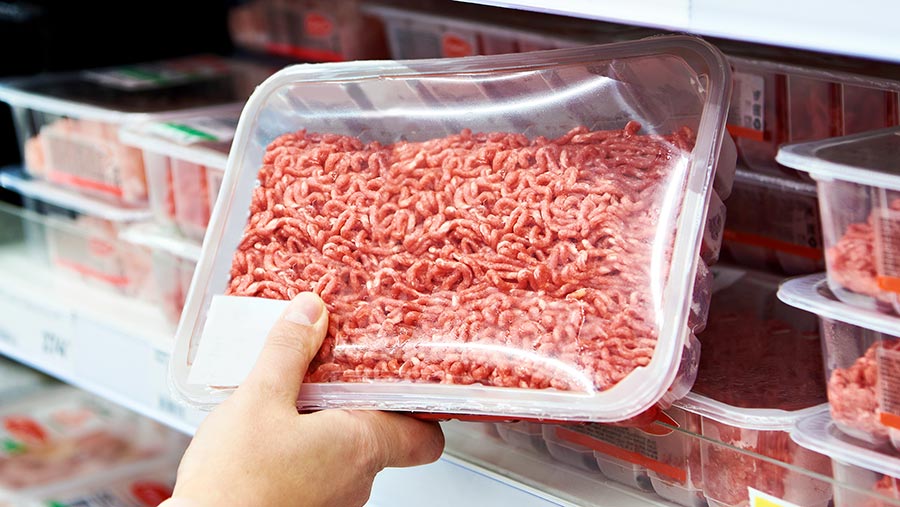Opinion: I (mostly) trust the food supply chain
 © Sergey Ryzhov/Adobe Stock
© Sergey Ryzhov/Adobe Stock I was in Sainsbury’s chiller aisle, loitering with intent to buy mince.
As usual I checked the packs for weight, fat content and country of origin and was about to put one bearing a Union Jack in the trolley when I decided to take a closer look at the label.
There was no Red Tractor logo, but the beef had been “reared by our trusted farmers” so I bought it.
See also: Opinion – farm support should help real people doing real jobs
When I got home, out of curiosity I took a pack of Waitrose mince out of the freezer to see what that said.
On the front were a Union Jack, a “Good Health” logo and another one trumpeting the supermarket’s animal welfare credentials.
On the back were the Red Tractor logo and, in very small print, a statement that they “only buy meat from farmers we know and trust” – that word again.
Now, I pay quite a lot of attention to lists of ingredients and provenance and some things will be rejected if I don’t like what I see.
However, the absence from the Sainsbury’s mince of any blurb about animal welfare or quality standards did not stop me from buying it – I needed mince and it wasn’t convenient to go elsewhere in search of a product that claimed to be ethically or environmentally superior.
Like many people, I can’t easily get to know a local butcher or regularly attend a farmers’ market so I have to trust that what the big retailers are selling me is what it says it is and has been produced to a good standard.
To my surprise, an online search revealed that Sainsbury’s phased out Red Tractor in 2012 on the grounds that a plethora of logos simply confuses customers.
So that just shows you how much notice I’ve been taking.
Feeling bad about my ignorance, I asked a few of my friends what “Red Tractor” meant to them.
Here are some of the answers:
A blank stare; “Red Tractor? What about Red Tractor?”; “Like a kitemark for meat”; “Food safety”; “Home-grown farm produce?”; “A label to do with sustainable farming”; “Something to do with food quality?”
One vaguely remembered seeing a television advertisement.
It appears I am not the only consumer who does not have Red Tractor at the forefront of their mind when deciding what to buy, but I hope the fact that I and a handful of my friends are not a remotely representative sample of the public may be some consolation for any farmer who has jumped through all the hoops to gain accreditation.
Still, I have to wonder if the message is getting through, and whether logos have any effect against the food scandals that erupt from time to time – BSE, salmonella in eggs, horsemeat masquerading as beef and most recently Farmers Weekly‘s “meat fraud” investigation.
There are two possibilities.
One is that, like me, the public mostly trust the food supply chain in this country and logos such as Red Tractor provide reassurance, however subliminal, so that their faith in it is not fatally undermined by the occasional lurid headline.
Alternatively, logos and scandals alike simply wash over them, they just want some mince at a reasonable price and don’t give much thought to how it was produced.

